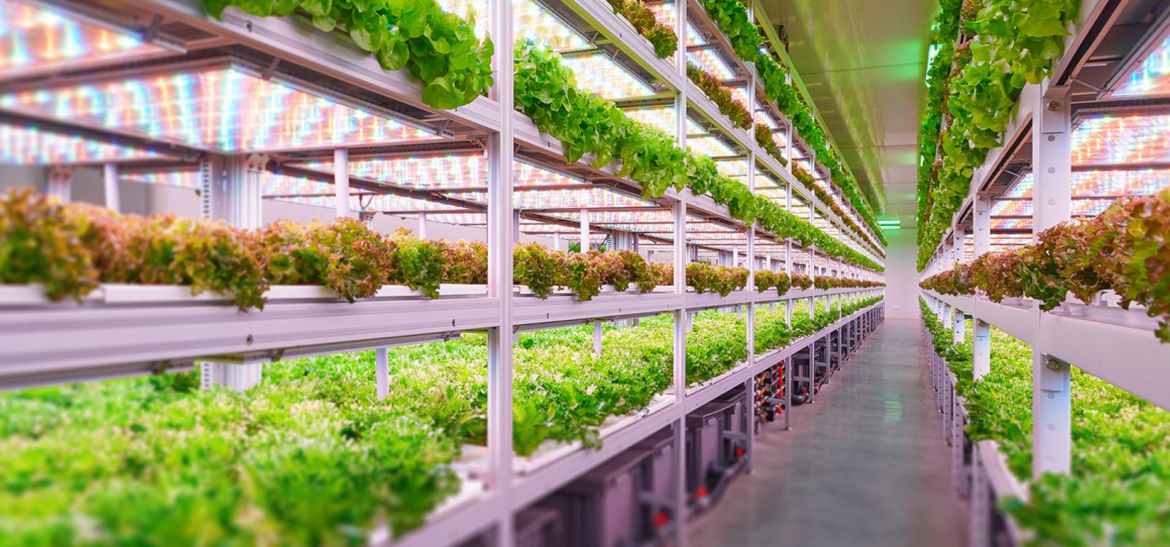Urban farming has become an increasingly important method for growing food in densely populated cities. Today, vertical urban agriculture is applied in a wide variety of settings, including metropolitan areas, industrial facilities, and controlled environment farms. This approach enables the cultivation of crops in stacked layers or vertically oriented systems, optimizing limited space while maintaining high standards of crop quality. By using indoor conditions and artificial lighting, urban farming ensures that crops can grow consistently throughout the year, independent of seasonal variations or external weather challenges. This method is especially relevant in regions with harsh climates or limited arable land, where traditional agriculture may not be sufficient to meet food demand.
Industrial and Large-Scale Urban Farming
Modern urban farming often involves industrial-scale facilities that utilize automated systems, precision sensors, and controlled nutrient delivery. Vertical urban agriculture in these setups relies on advanced technologies such as LED lighting optimized for plant growth, vertical racks, AI-driven environmental controls, and hydroponic or aeroponic systems. By integrating these technologies, growers can enhance crop uniformity, increase yield, and improve production efficiency. 4D Bios provides comprehensive solutions for experienced operators, including modular plant factories that support large-scale production of leafy greens, strawberries, and specialty crops. Their approach allows growers to maintain consistent quality while scaling operations efficiently, ensuring that the benefits of vertical urban agriculture can be fully realized in both commercial and industrial contexts.
Regional Adaptations and Market Trends
Vertical urban agriculture is expanding across multiple regions including Europe, North America, and the Middle East, specifically in countries such as Saudi Arabia, the UAE, and Qatar. Government initiatives in these regions often support sustainable food production, energy efficiency, and innovative agriculture practices. In Australia and Singapore, urban farming emphasizes resource conservation, food security, and controlled-environment efficiency. 4D Bios aligns its plant factory solutions with these regional trends, offering systems that combine vertical cultivation, AI-controlled environmental management, and optimized LED lighting. Their technologies support standardized crop production while adapting to local climate conditions, energy costs, and market needs, which is essential for experienced operators looking to implement urban farming at scale.
Conclusion: Advancing Modern Agriculture
Vertical urban agriculture is increasingly applied in real-world settings beyond experimental projects, demonstrating its relevance to contemporary food production. By combining automated environmental controls, precise nutrient delivery, and efficient vertical cultivation, urban farming can provide consistent and reliable yields. Experienced operators can benefit from the industrial-scale solutions offered by 4D Bios, which integrate smart plant factory technologies and controlled production methods. These solutions enable high-quality crop production year-round while supporting sustainability and operational efficiency. As urban populations continue to grow, vertical urban agriculture represents a practical, scalable approach to modern agriculture, helping cities meet food demands while minimizing environmental impact.
